The second event in the Bubble’s 40th Anniversary Year, saw a fascinating discussion between the 3 Artistic Directors who followed founder Glen Walford during the 1980’s – Bob Carlton, Bob Eaton and Pete Rowe, joined by Administrative Director, Sarah Holmes, and Associate Director and chair for the evening Rob Swain.

The discussion ranged widely topics and titbits included:
Glen’s two pieces of advice on handing the company over to Bob Carlton: “Make it colourful” and “don’t patronise audiences by doing Tower Block Shows”.
The centrality and effectiveness of music and the invention of the term, actor musician
The 1983 fight to avoid being cut – including phantom letter writers and the Bubble Band interrupting the critical Drama Panel meeting with a musical demo, resulting in a telephone deal being made between GLAA the GLC
How the tent based company struggled to take on the subsequent Greater London Arts Association instruction to deliver Participatory activities
The inevitable arrival of the Tower Block Show – described by its director, Bob Eaton as “colourful but sh*te”
How gruelling tent touring was, and the concept of the Bubble performer – ”a year’s contract felt like a life sentence”
The extraordinary development of participatory work – now described by Sarah Holmes as her favourite aspect of British Theatre
The dramatic response to the gentrification of the docklands “I Fought the Yuppie Zombies From Hell”
How Roxy Music’s name was inspired by the Noticeboard at the Bubble’s first home The Roxy.
The move to Elephant Lane and the beauty of having everything under one roof.
A sense that Bubble were the frontline troops sent to play the trickier audiences, “who’ll go to Isle of Dogs – oh The Bubble will”
The consequences of the acting company refusing to perform in the Isle of Dogs after a front of house manager was flattened.
The panel concurring that touring in the tent forged a style of popular theatre that you didn’t find anywhere else, and creating an ethos that each director has carried with them ever since.
Actors from various 1980’s shows talked about the direct experience of playing both the tent (trying to play Shakespeare, next to the Moscow State Circus) and venues (with audiences walking across the stage to sit on the chairs on set) and suffocating costumes. And projects workers chipped in with perspectives on the context (all white interview panels and class assumptions).

As well as the 80’s crew, there was a healthy turn out of Bubble people from the 90’s, and of course current staff were hosting the event. By the end of the evening it felt to these current incumbents as though they had looked into their gene pool, and recognised their forebears. And I think Bob, Bob, Pete, Sarah and Robert – the brave folk who had seen “the best of times and the worst of times” (to quote Pete Rowe) had enjoyed sharing insights and experiences and sensed that they directly linked to the Bubble now.
